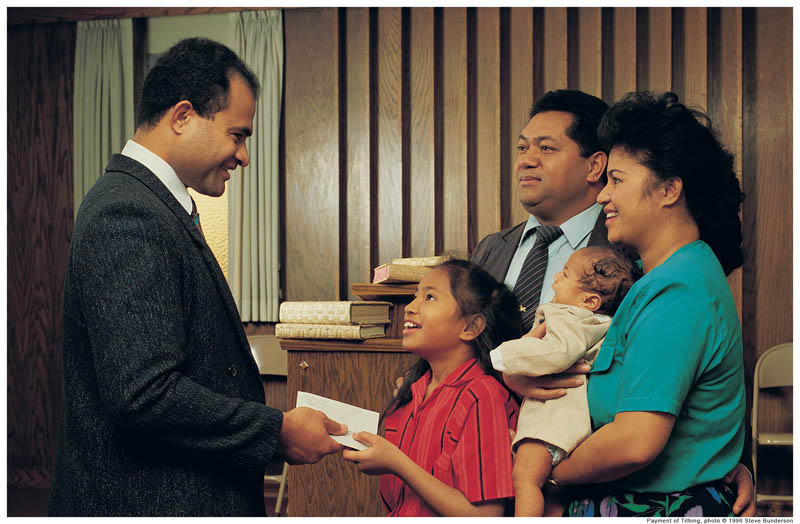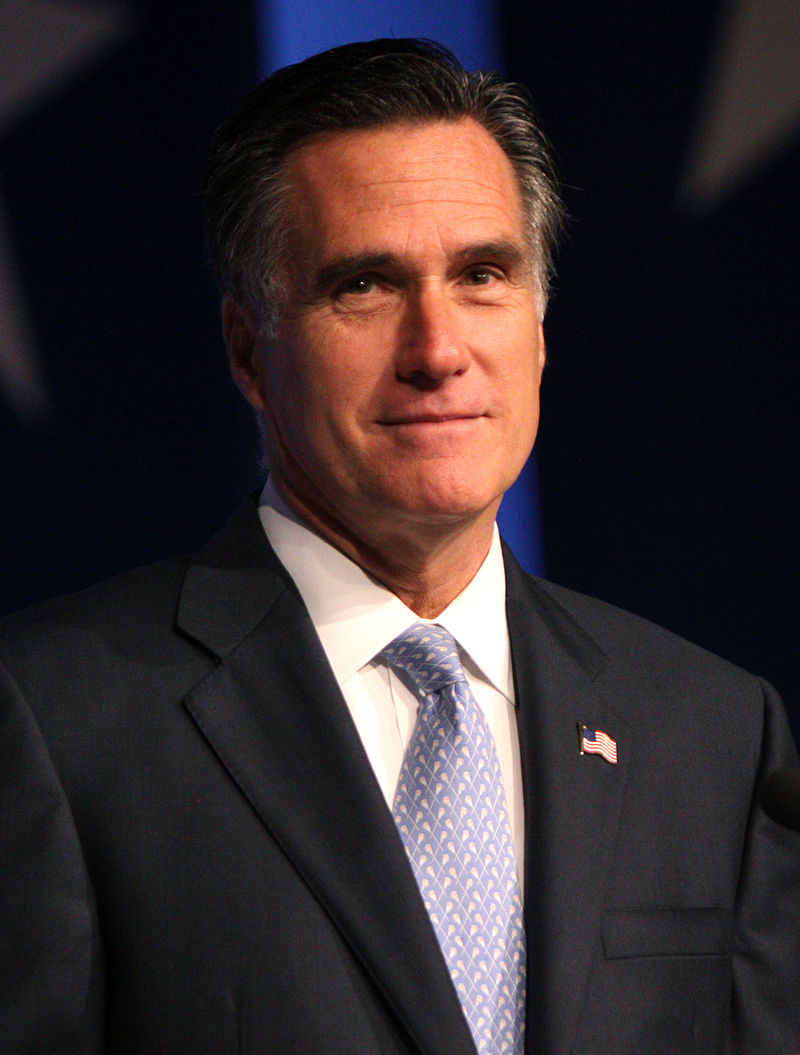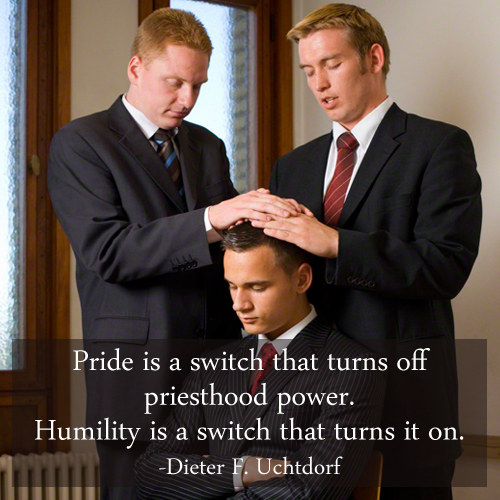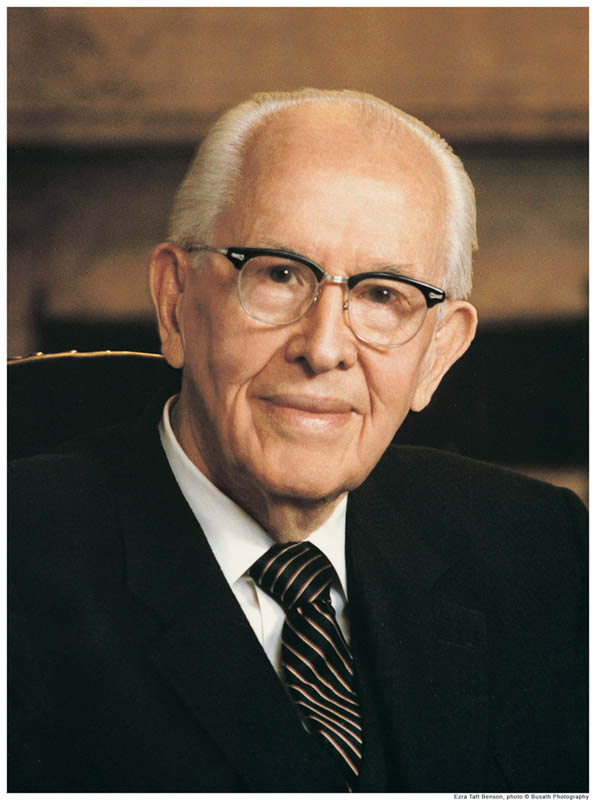Because Mitt Romney has been a Mormon bishop and a Mormon stake president, and is still a high priest, those terms have generated a lot of interest—and a lot of misinformation. In order to understand how those titles affected him in the past and how they affect him now, it’s important to understand what they mean. This is not a political article. It is about explaining Mormonism, not electing a candidate.
 Mormon is a nickname some people use for members of The Church of Jesus Christ of Latter-day Saints. It is not appropriate to use the term “Mormon Church” because it is Jesus’ church, not Mormons. (Mormon was an ancient prophet and is not worshipped anymore than we worship Noah or Moses.) Mormons themselves tend to use the term LDS when they need a shortcut. To use it correctly in a sentence, we would say, “The LDS people believe…” rather than “LDS believe….”
Mormon is a nickname some people use for members of The Church of Jesus Christ of Latter-day Saints. It is not appropriate to use the term “Mormon Church” because it is Jesus’ church, not Mormons. (Mormon was an ancient prophet and is not worshipped anymore than we worship Noah or Moses.) Mormons themselves tend to use the term LDS when they need a shortcut. To use it correctly in a sentence, we would say, “The LDS people believe…” rather than “LDS believe….”
Mitt Romney, in his past church service, has been both a bishop and a stake president. He is still a high priest. However, to understand what all this means, you have to understand how the Mormons run their churches and how the priesthood works. Let’s start with how the church operates.
The Mormons have a lay church. This means no one is paid for ecclesiastical work. From the organist to the bishop (lay pastor), we are all volunteers. Even the apostles and the prophet, at the very top of the church, are volunteers who do not get paid. A few international-level positions, such as the apostles and prophets, and the international leaders of auxiliary positions (including some held by women) are full-time positions. If the person asked to take the position has no private source of income, such as a pension, he or she can receive a modest stipend (not a paycheck) which allows them to live, but not elegantly. This money is not paid from tithing, but from the for-profit arm of the church. Unlike many religions, Mormons do not wrap their businesses into their ministry. They operate them separately as for-profit businesses.
However, the positions Mitt Romney held are not full-time positions, nor are they permanent positions. A bishop oversees a congregation, much like a lay pastor. He is not paid and does not do it full-time. Bishops have non-church employment of their own choosing and run their congregations in their “spare” time. It is an extraordinarily demanding role and so they only hold it for about five years. Because it is not a full-time job, they do not give the weekly sermon. Members take turns doing that and in a typical worship service, two to four teens and adults will speak, giving brief sermons, which Mormons call talks. In addition, nearly everyone has a “calling,” which is a volunteer position.
Mormons normally don’t ask for their callings and no one asks to be the bishop. It is so much work that those who are qualified generally don’t want it. Bishops are chosen by leaders higher up after praying to know who God wants. You don’t work your way up the ladder to the position. A person might be the Cub Scout leader or toddler nursery assistant one day and the bishop the next. When his service is complete, he returns to being an ordinary church member and could have a calling at any level, not even necessarily a leadership position.
A bishop oversees the work of a congregation with the aid of two counselors—counseling those in need, looking after the welfare of members, overseeing the priesthood program for the teenage boys, and generally providing the normal leadership duties required of someone running an organization. He is overseen by people at a higher level and cannot make doctrine or change church policy in any way. He must follow established church policy and doctrine. The decision-making, then, is procedural, not doctrinal.
A stake president oversees a group of congregations in a geographical area. A stake might be compared to a diocese, but again, the stake president’s role is not full-time. A stake president does his work while holding regular employment. This means it is not equivalent to the work and authority of someone in other churches who does this work full-time. Volunteers take on many of the duties required. A stake president is also overseen by others and cannot make doctrine. He must follow the procedures and doctrines already in place. He can, of course, help select the priorities of a stake. Most stake presidents serve about seven years and then are “released” and can hold any calling in the church, even ones some might consider low-level. As mentioned earlier, you aren’t promoted or demoted in the church. Your callings just change, giving you a wide range of opportunities to serve in a variety of positions and to gain a solid range of skills and a good understanding of how the church operates.
In the course of a lifetime, a Mormon will hold many positions. Most positions change every year or two, and people move comfortably in and out of leadership positions. I have often found myself in the presidency of an organization one week and a teacher in that same organization the next. The president or leader may find herself the assistant next time around. When I was first chosen to be the president of the children’s Primary program, I chose as one of my counselors (assistants) someone who had been a president several times, both at the congregational and stake level. She was not offended at being the assistant of a younger and very inexperienced leader and I chose her because she was older and more experienced. I wanted to be able to draw on her experience as I learned. In return, I have often been an assistant to much less experienced leaders. Mormons aren’t ambitious about their callings. They do whatever needs to be done at any level and being a leader one time and a ground floor volunteer the next helps us remember what it is like at all levels and makes us better volunteers.
Mitt Romney is neither a bishop nor a stake president at this time. He is, however, still a high priest. Mormon priesthood is given to all worthy males who are at least twelve years old. The teenagers and the adults who are new to the church or the priesthood hold the Aaronic priesthood. There are several levels of this priesthood. At around age eighteen, they receive the Melchizedek priesthood. There are also several levels in this priesthood, but while Aaronic priesthood holders tend to advance to new levels by age, this is not true of the Melchizedek priesthood. Men begin as elders and many, regardless of worthiness, remain elders all their lives. However, some church callings, including the callings of bishop and stake president, require a person to be a high priest, so when a person is chosen for these roles, he receives that priesthood. Some men also receive it without being given a calling that requires it. The men who hold this position often receive the more difficult church assignments, but being a high priest does not mean the person currently has a position that requires it. Once a person becomes a high priest, he holds it for life if he remains worthy. Even if he finds himself teaching toddlers, he will still be a high priest, although, of course, that position does not require the priesthood at all.
For this reason, it is inaccurate to believe that Mitt Romney has any special church responsibility just because he is a high priest. He does not answer to the prophet in his secular job—no Mormon does. In his church work, he will answer to whoever is over him, but even bishops and stake presidents don’t report directly to the prophet. They report to the next person up. The church does not dictate how political leaders operate and they are given a great freedom to lead as they choose in their political life. This is why both Mitt Romney and Harry Reid can be Mormons while belonging to different parties and holding very diverse political views. It is why both candidates sometimes take political stands that do not line up with church doctrine. The church maintains political neutrality where candidates and politicians are concerned. Unlike many churches, politicians are not invited to speak in LDS church meetings on political subjects, although one might be asked to speak in his own congregation annually on a non-political subject—but all Mormons are asked to do that.
Politically, then, it makes no difference that Mitt Romney is a high priest. It only affects which priesthood class he attends on Sunday morning, not what decision he makes on Monday morning at work.
The late Terrie Lynn Bittner—beloved wife, mother, grandmother, and friend—was the author of two homeschooling books and numerous articles, including several that appeared in Latter-day Saint magazines. She became a member of the Church at the age of 17 and began sharing her faith online in 1992.







Once you are a bishop you are always a bishop unless the priesthood is taken away from you.
Bruce, once a bishop is released, he no longer presides over the ward or has keys — but you’re correct in that you can always use the title of bishop when referring to a former bishop, since bishop is an office of ordination conferred by the laying on hands.